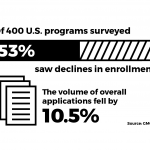
New research has found Alzheimer’s disease continues to be a growing problem both in Boston and for the future of health care. The Alzheimer’s Association Massachusetts is collaborating with the Massachusetts Legislature to address the growing public health crisis of Alzheimer’s in the state.
In Massachusetts alone, 120,000 individuals are currently living with Alzheimer’s disease, a diagnosis that is expected to triple in number by 2050, according to an op-ed published in Commonwealth Magazine on Oct. 23. The authors of the article — Sen. Barbara L’Italien, chair of the Joint Committee on Elder Affairs, and Sen. Jason Lewis, chair of the Joint Committee on Public Health — wrote that those with Alzheimer’s largely haven’t been diagnosed or are unaware of diagnosis.
Both L’Italien and Lewis are working with organizations such as the Alzheimer’s Association to push for new legislation in areas ranging from public safety to caregiving to accommodate the rising number of patients diagnosed with the debilitating disease, according to their op-ed.
Russell Martin, public relations and marketing manager for the Alzheimer’s Association, said they are holding informational sessions on the issue of Alzheimer’s.
“We work closely with health care professionals to help them learn current and cutting edge information on a wide range of Alzheimer’s related care topics,” Martin said. “Our hope is that these trainings lead to positive experiences in the various medical and hospital environments they work [in].”
Martin said the legislature has put forward a policy agenda for Alzheimer’s which focuses on improving the rate and the timing of the diagnosis, advocating awareness to the most vulnerable populations in Massachusetts and ensuring the state has the financial capacity to address the issue from a health care perspective.
Alzheimer’s is a disease which has no cure, no treatment and no prevention, Martin said, which is why they are working to fight for the patients who are diagnosed by helping advocate for more research and funding.
“For patients living with the disease, we must ensure they are given the best available healthcare and that those professionals are consistently trained as new findings occur,” Martin said. “There is a lot to be done, but as we’ve seen, our collective voice and movement can have a lasting impact.”
Martin said Alzheimer’s can affect anybody, even having presence in patients as young as 40 or 50 years old, disqualifying the stereotype that it is a disease for old people.
“Alzheimer’s disease reaches into all of our lives, regardless of age, race or social status, and we need to continue to collectively advocate and support research in order to one day reach our ultimate goal of a world without Alzheimer’s disease,” Martin said.
Director of the Alzheimer’s Association, Liz McCarthy, wrote in an email she too has been speaking with hospitals about developing new care plans.
“Our chapter recently worked with a statewide task force and developed an executive plan to address dementia in acute care facilities,” McCarthy wrote. “The executive plan recommends that hospitals develop an operational plan for dementia, that includes staff training and education and is monitored by a quality improvement plan.”
McCarthy wrote through their chapter’s Dementia Care Coordination program they have been able to partner with health systems and health insurers to link people with dementia, as well as their families, to services which will help diagnose patients.
“We have successfully raised funds to develop and implement a physician education tool; implement a program focused on providing support to family caregivers; and running a successful public awareness campaign,” McCarthy wrote. “As a non-profit organization, our programmatic success is dependent on our ability to raise money.”
McCarthy wrote the Alzheimer’s Association has an online database called TrialMatch which serves as a “dating service” for clinical trials. Users complete a profile and are matched to studies in their geographic area for which they are eligible.
Zachary Crowley, chief of staff at the office for Lewis, wrote in an email the legislature has passed new laws to address the Alzheimer’s epidemic and that medical experts have announced there are treatments that can slow the disease.
“There are a number of programs and resources funded through federal, state and local budgets to provide care for Alzheimer’s patients,” Crowley wrote. “These range from federal grants to state line items to locally-subsidized efforts in dementia-friendly communities.”
Crowley wrote all these new resources are part of the effort behind legislation to develop a statewide Alzheimer’s plan.
“In recent years the Legislature has passed new laws to address Alzheimer’s, including the Silver Alert law; legislation regarding dementia-friendly units at nursing homes (requiring training and meeting certain quality standards); and legislation creating a task force to look at Alzheimer’s and interaction with the acute care treatment setting,” Crowley wrote.
Several Boston residents said Alzheimer’s is a serious issue within the state and should be treated with urgency.
Diana Coluntino, 58, of the West End, said the elder population is often afraid of certain medical products can lead to Alzheimer’s. Coluntino said she believes antiperspirants containing aluminum may affect the presence of Alzheimer’s.
“My guess is that Alzheimer’s is sometimes an umbrella diagnosis for any dementia,” Coluntino said. “There seems to be a lot of organizations lobbying for more research as the aging baby-boomer generation and their families need more support.”
Jolie Helmbrecht, 43, of the West End, said she believes Alzheimer’s may stem from people’s diets, and patients should be treated with the same care as any other patients with a debilitating condition.
“I would also question if it stems from our contaminated food sources and genetically modified foods as we are what we eat,” Helmbrecht said. “Those with Alzheimer’s and dementia should have access to all necessary help.”
Emily Shamieh, 66, of Jamaica Plain, said she knows many people who are affected by Alzheimer’s.
“There was an article in The Boston Globe a few days ago about the increase in Alzheimer’s and that the increase will continue to grow,” Shamieh said. “We have to focus on growing our public health system in order to help more patients in the future.”




